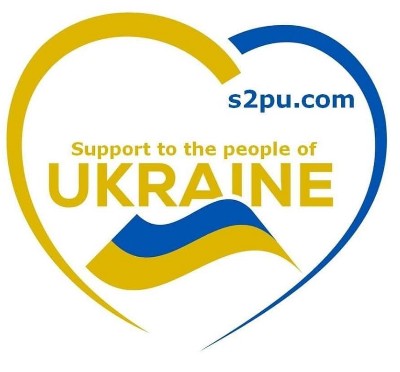
Petro Poroshenko [President of Ukraine] and Jens Stoltenberg (NATO Secretary General ).
Statement by the North Atlantic Council
- Press Release (2019) 039
- Issued on 18 Mar. 2019
A sovereign, independent and stable Ukraine, firmly committed to democracy and the rule of law, is key to Euro-Atlantic security. Relations between NATO and Ukraine date back to the early 1990s and have since developed into one of the most substantial of NATO’s partnerships. Since 2014, in the wake of the Russia-Ukraine conflict, cooperation has been intensified in critical areas.
- Five years ago, Russia used force against Ukraine to illegally and illegitimately annex Crimea. This violation of Ukraine's sovereignty and territorial integrity is a serious breach of international law and a major challenge to Euro-Atlantic security. We strongly condemn this act, which we do not and will not recognise. We call on Russia to return control of Crimea to Ukraine. We reiterate our full support for Ukraine's sovereignty and territorial integrity within its internationally recognised borders and territorial waters. Crimea is the territory of Ukraine.
- Allies are deeply concerned by the human rights abuses and violations being carried out by the Russian de-facto authorities in illegally annexed Crimea against Ukrainians, the Crimean Tatars, and members of other local communities. These violations include extrajudicial killings, abductions, enforced disappearances, violence, arbitrary detentions, arrest, and torture. Despite the 2017 Order of the International Court of Justice, the Mejlis, the Crimean Tatars' self-governing body, remains under persecution and is banned in its homeland.
- NATO calls on Russia to bring an immediate end to all violations and abuses in illegally annexed Crimea, to release Ukrainian political prisoners and hostages, and to grant international monitoring organisations access to Crimea. Any attempts to legitimise or normalise the illegal and illegitimate annexation of Crimea must end, including the automatic imposition of Russian citizenship, forced population movements, conscription in the armed forces of the Russian Federation, and illegal holding of Russian election campaigns.
- We condemn Russia's ongoing and wide-ranging military build-up in Crimea, and are concerned by Russia's efforts and stated plans for further military build-up in the Black Sea region. We also condemn Russia's construction of the Kerch Strait bridge, which represents another violation of Ukraine's sovereignty and territorial integrity and is imposing additional hardship on Ukraine's economy. Russia's unjustified use of military force against Ukrainian ships and naval personnel near the Sea of Azov and the Kerch Strait in November 2018 is part of the larger pattern of Russian aggressive actions in the region. In line with United Nations General Assembly Resolution 73/194 from 17 December 2018, we call on Russia to unconditionally release the Ukrainian crew members it detained, to return the captured vessels and to comply with its international commitments by ensuring unhindered access to Ukrainian ports in the Sea of Azov and allowing freedom of navigation.
- NATO's response to address Russia's illegal actions in Ukraine has been alongside and in support of an overall international effort, which has included sanctions. There can be no return to "business as usual" until there is a clear, constructive change in Russia's actions that demonstrates compliance with international law and its international obligations and responsibilities.

Comments powered by CComment